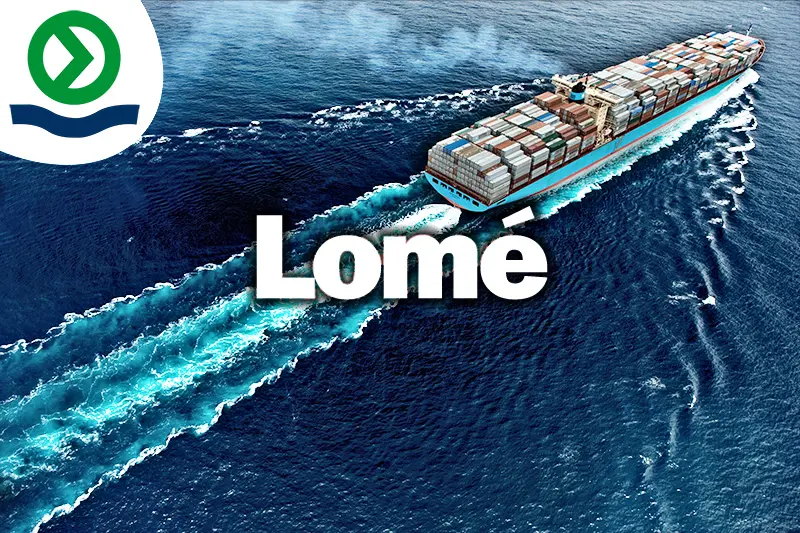Mega
Ships, Real Impact:
Can
West Africa’s Ports Deliver Beyond the Dock
West Africa’s maritime sector recently celebrated major milestones as two of the world’s largest container ships—MSC Diletta and MSC Türkiye—docked at the ports of Lomé, Togo, Tema and Ghana respectively. These events were widely praised, with officials and stakeholders hailing them as signs that the region’s ports are now ready to compete on a global scale.
The MSC Diletta, which docked at the Port of Lomé, boasts a length of 400 meters and a capacity of over 23,000 twenty-foot equivalent units (TEUs). Tema Port hosted a similarly sized ship, the MSC Türkiye, demonstrating Ghana’s expanded capabilities after years of port upgrades.
Both ports have clearly taken bold steps to modernize facilities, deepen berths, and improve handling capacity. However, port modernization cannot end with vessel accommodation. While these mega ships symbolize a leap in technical capacity, maritime experts stress that the real measure of success lies not in the size of vessels, but in how port infrastructure is utilized to drive lasting economic growth.
The key question now facing West Africa’s maritime leaders is: how can these moments of prestige translate into real, sustained economic benefits? Arguably utility—defined by how effectively ports facilitate trade, reduce costs, and connect to broader supply chains—must be the central metric of progress.
Hosting massive ships is a sign of progress—but translating that into long-term economic benefit requires much more. This includes reducing cargo dwell times, improving customs processes, strengthening road and rail links to hinterlands, and fostering regional integration through harmonized policies. It also means ensuring that the economic gains from increased maritime traffic reach beyond port walls—supporting jobs, local businesses and industrial growth inland.
If ports become efficient engines of trade, they can reduce import/export bottlenecks, lower prices, and create employment across sectors. Otherwise, even the largest vessels will amount to little more than photo opportunities. As West Africa earns its place on the global shipping map, it must ensure its ports serve not only ships, but also the people and economies behind them.
A BESC (Bordereau Électronique de Suivi des Cargaisons) is mandatory for all shipments.
The R&C Desk simplifies the process and provides efficient
assistance to comply with the latest requirements.
For further assistance, the R&C Desk website is available 24/7.
West Africa’s maritime sector recently celebrated major milestones as two of the world’s largest container ships—MSC Diletta and MSC Türkiye—docked at the ports of Lomé, Togo, Tema and Ghana respectively. These events were widely praised, with officials and stakeholders hailing them as signs that the region’s ports are now ready to compete on a global scale.
The MSC Diletta, which docked at the Port of Lomé, boasts a length of 400 meters and a capacity of over 23,000 twenty-foot equivalent units (TEUs). Tema Port hosted a similarly sized ship, the MSC Türkiye, demonstrating Ghana’s expanded capabilities after years of port upgrades.
Both ports have clearly taken bold steps to modernize facilities, deepen berths, and improve handling capacity. However, port modernization cannot end with vessel accommodation. While these mega ships symbolize a leap in technical capacity, maritime experts stress that the real measure of success lies not in the size of vessels, but in how port infrastructure is utilized to drive lasting economic growth.
The key question now facing West Africa’s maritime leaders is: how can these moments of prestige translate into real, sustained economic benefits? Arguably utility—defined by how effectively ports facilitate trade, reduce costs, and connect to broader supply chains—must be the central metric of progress.
Hosting massive ships is a sign of progress—but translating that into long-term economic benefit requires much more. This includes reducing cargo dwell times, improving customs processes, strengthening road and rail links to hinterlands, and fostering regional integration through harmonized policies. It also means ensuring that the economic gains from increased maritime traffic reach beyond port walls—supporting jobs, local businesses and industrial growth inland.
If ports become efficient engines of trade, they can reduce import/export bottlenecks, lower prices, and create employment across sectors. Otherwise, even the largest vessels will amount to little more than photo opportunities. As West Africa earns its place on the global shipping map, it must ensure its ports serve not only ships, but also the people and economies behind them.
A BESC (Bordereau Électronique de Suivi des Cargaisons) is mandatory for all shipments.
The R&C Desk simplifies the process and provides efficient
assistance to comply with the latest requirements.
For further assistance, the R&C Desk website is available 24/7.
Get your BIETC/ECTN/
BESC/Waiver/Certificate NOW!
Stay on up to date of all regulations!
Sources
maritimereview.co.za
| maritimafrica.com
| thebftonline.com
Image by R&C Desk
What are you waiting for?
Let us make sure that you have the correct Electronical Cargo Tracking Note for you shipment!
Login
